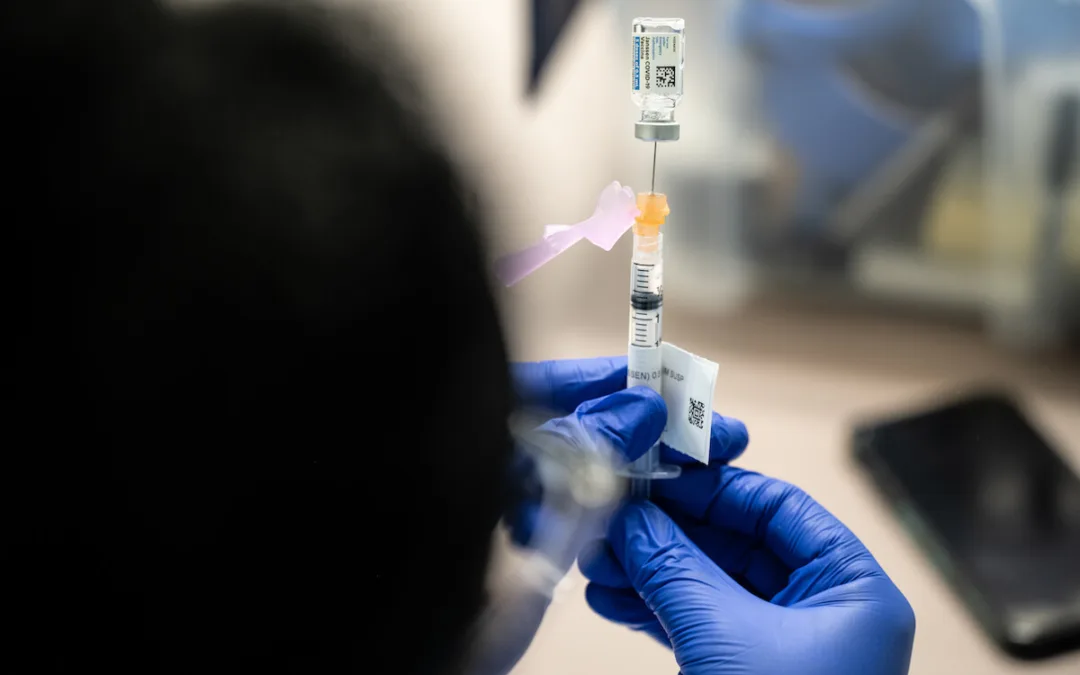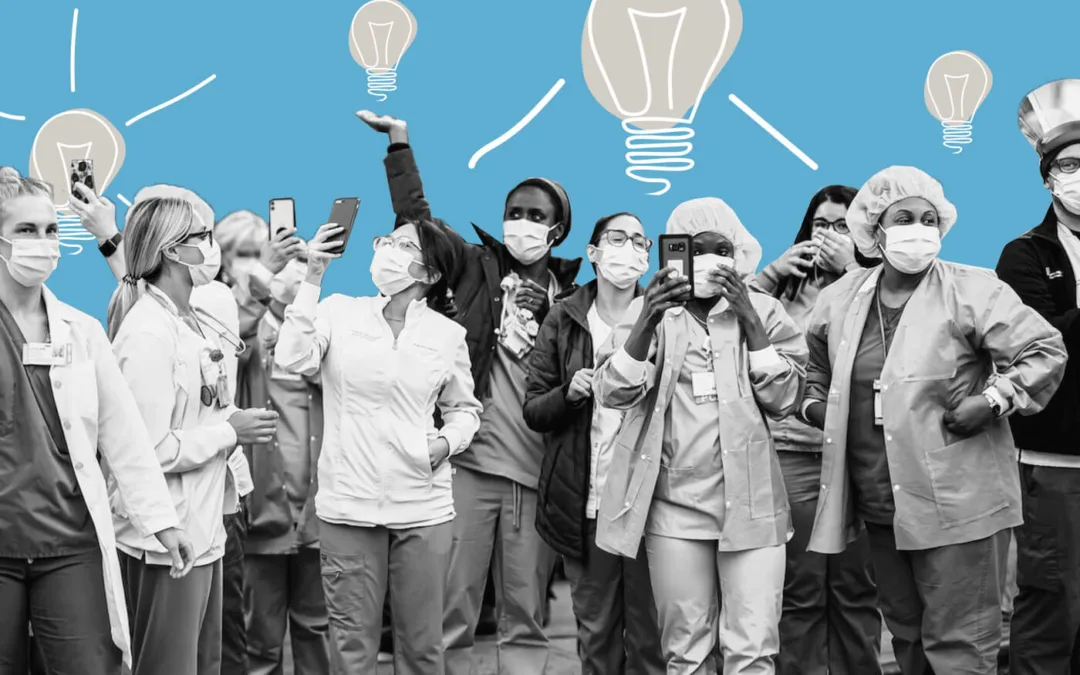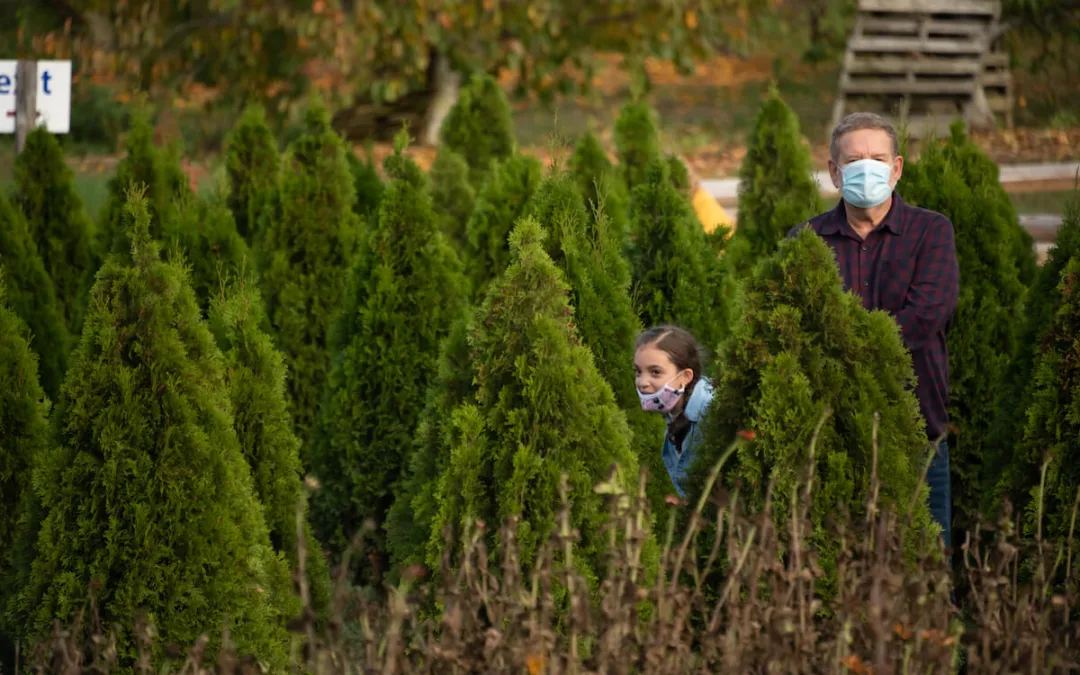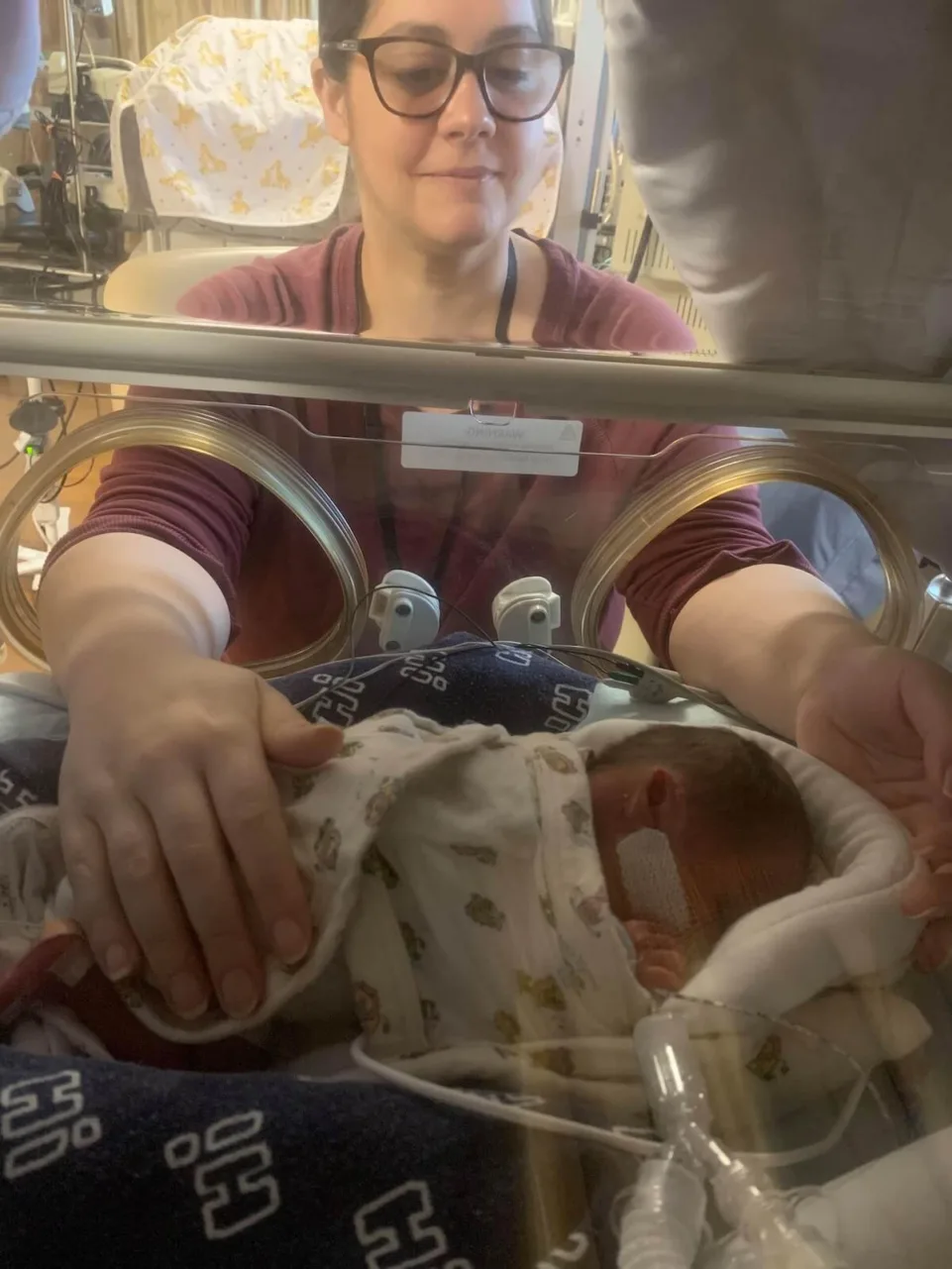
#image_title
#image_title
Restrictions needed to protect the vulnerable from coronavirus
With each new report she hears about coronavirus spreading, Sarah Driever grows increasingly worried about not only the health, but the survival of her two tiny twin boys.
Ari and Archie were born six weeks ago at University of Minnesota Masonic Children’s Hospital in the Twin Cities. They were born 14 weeks premature, weighing just 2 pounds each, without the ability to breathe on their own. Since their births, the twins have required special ventilators simply to be able to get enough oxygen to live.
Because of their breathing difficulties, their tiny, fragile bodies, and additional health struggles that included a life-saving surgery for Ari, even Sarah and her husband, Ang, are rarely able to hold their sons.
Now the couple must worry about their boys, already fighting for their lives, facing a new possible threat in the form of coronavirus.
Standing near her infant sons in the hospital’s neonatal intensive care unit Friday, Driever described the fear she and her husband feel about the chances of the contagious, potentially deadly virus infecting her babies who are especially vulnerable to the virus that attacks the respiratory system.
“It’s so scary as we learn how this virus impacts my babies’ ability to breathe,” said Driever, who moved from Eau Claire to the Twin Cities suburb of Brooklyn Park 11 months ago. “This virus is scary enough, and having kids who are susceptible and have underlying health issues, it makes you very scared.”
Concerns about the spread of coronavirus, also known as COVID-19, continued Friday when President Donald Trump declared a national state of emergency which mandates extensive limits on visiting nursing care facilities. That action follows travel restrictions, massive sporting event cancellations, Gov. Tony Evers’ declaration of a public health emergency on Thursday, and a Friday announcement cancelling K-12 classes.
The ability of the coronavirus to negatively impact patients like Ari and Archer has prompted hospitals and nursing homes across the nation to implement policy changes Friday that include significant restrictions at those facilities, including who can visit them. Similar protections were announced in Wisconsin, where officials announced the detection of 11 new cases of the virus Friday.
People in nursing homes and hospitals can be especially at risk of contracting coronavirus because of their relatively close proximity and their compromised health. In Washington state, an outbreak of the virus that has infected 457 and killed 31 started at a nursing home.
In addition to limiting visitors, hospitals across the state announced steps such as creating employee teams to develop coronavirus policies, practices to separate coronavirus patients from others, mandatory coronavirus screening for all patients, and the cancellation of medium- to large-scale gatherings.
Nursing homes are taking similar measures to prevent the spread of the highly contagious virus. John Sauer, president and CEO of LeadingAge Wisconsin, which represents nursing home and assisted-living operators, said the state Department of Health Services has recommended those facilities restrict visitors to only those essential to the physical and mental health of clients.
In addition, Sauer said, visitors to those facilities will be screened for coronavirus when they enter. If they have traveled recently to sites where COVID-19 has been present, they should not visit nursing homes and assisted living sites, he said.
Public health experts expect the number of coronavirus cases is likely to grow in coming days and weeks, Sauer said, and restricting visitors now hopefully can avoid a significant spike in those who contract the virus.
“The whole goal is we’re not going to stop (coronavirus), but if we can slow the rate of its prevalence, we can hopefully prevent it from overwhelming the healthcare system, including the long-term care system,” Sauer said. “In order to do that, we need to aggressively monitor who lives at those sites and who is coming into our facilities.”
Public health officials across Wisconsin stressed the need for people to refrain from large gatherings and practice good personal hygiene, especially frequent hand washing.
At a news conference Friday afternoon, Eau Claire City-County Health Department Director Lieske Giese urged people not to panic but acknowledged that while coronavirus has not been detected in Eau Claire County, the virus likely will make its way here.
“There are currently no cases of COVID-19 here,” she said. “But we expect that could change, and we are preparing for that.”
Part of preparation efforts include preventing nonessential visits to hospitals and nursing homes, Sauer said. Cutting off visits to loved ones in those facilities is difficult, Milwaukee resident Tanya Rollins said, because visitors and those in nursing homes and hospitals benefit from those interactions.
“This is going to be really hard,” Rollins said of restricted or temporarily discontinued checks on her 92-year-old mother in a suburban Milwaukee nursing home. “I need to see my mom, to make sure she is doing OK. She does better when I am there, and I worry about her if I can’t see her.”
However, Rollins acknowledged the need to try to prevent her mother and others from contracting COVID-19. Rollins’ mom is susceptible to pneumonia “and if she gets this virus it could kill her,” Rollins said.
Eau Claire resident Mark Gunderman and his sister take turns making daily visits to their mother at Care Partners Assisted Living in Eau Claire. They worry about her contracting coronavirus and understand the need to restrict visitors.
“She would not survive a bout of something like (coronavirus),” Gunderman said. “When we start having confirmed cases around here, we will probably have to cut back.”
Sauer acknowledged emotional difficulties associated with restricting access to nursing home, assisted living and hospital settings. But doing so is necessary to try to halt the spread of COVID-19, he said.
“Some of these decisions are painful. They affect real people,” Sauer said. “But we need to take these steps now to avoid an escalation of the number of (coronavirus) cases that are occurring. It is one way we can halt the spread of this virus.”
Politics

Eric Hovde’s company exposed workers to dangerous chemicals, OSHA reports say
A Madison-based real estate company run by Wisconsin US Senate candidate Eric Hovde settled with the Occupational Safety and Health Administration...
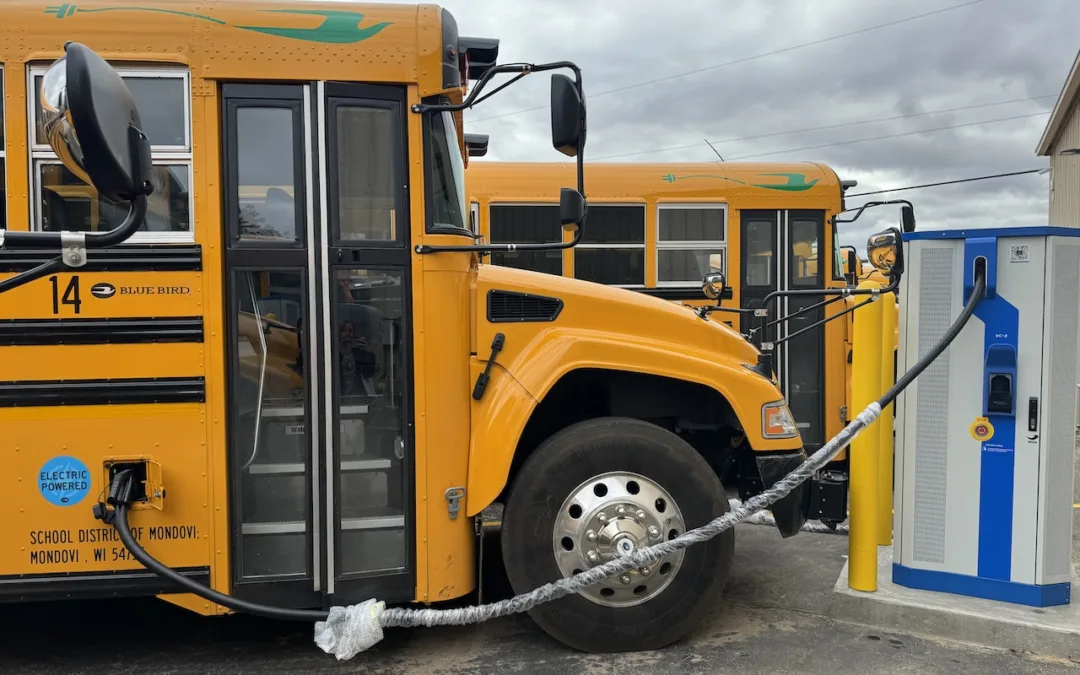
Plugged in: How one Wisconsin school bus driver likes his new electric bus
Electric school buses are gradually being rolled out across the state. They’re still big and yellow, but they’re not loud and don’t smell like...
Local News

Stop and smell these native Wisconsin flowers this Earth Day
Spring has sprung — and here in Wisconsin, the signs are everywhere! From warmer weather and longer days to birds returning to your backyard trees....

Your guide to the 2024 Blue Ox Music Festival in Eau Claire
Eau Claire and art go hand in hand. The city is home to a multitude of sculptures, murals, and music events — including several annual showcases,...


